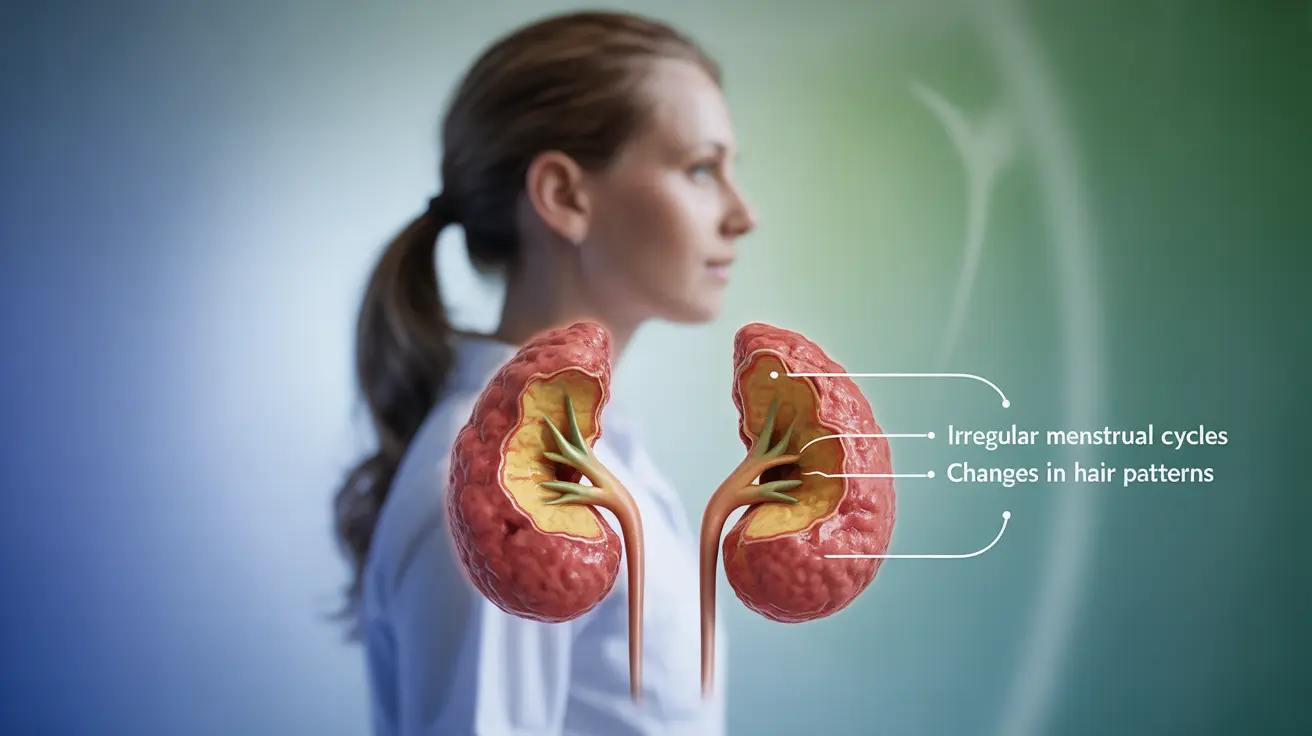Adrenal gland tumors can significantly impact women's health, causing a variety of hormone-related symptoms that may be confusing or concerning. Understanding these symptoms is crucial for early detection and proper treatment. This comprehensive guide explores the specific ways adrenal tumors affect female patients, including their impact on hormonal balance and overall well-being.
While these tumors can occur in anyone, certain symptoms present uniquely in women, particularly affecting menstrual cycles, body composition, and hair growth patterns. Early recognition of these signs can lead to faster diagnosis and more effective treatment outcomes.
Common Signs and Symptoms in Female Patients
Adrenal gland tumors in women can produce distinct symptoms depending on whether the tumor is functioning (hormone-producing) or non-functioning. Common indicators include:
- Unexplained weight gain, particularly around the midsection
- Rounded face and neck area
- High blood pressure
- Muscle weakness
- Irregular menstrual cycles
- Unusual body hair growth patterns
- Acne outbreaks
- Mood changes and anxiety
Hormone-Related Changes
When adrenal tumors produce excess hormones, they can cause significant changes in a woman's body. These may include:
- Hirsutism (excessive facial and body hair growth)
- Male-pattern baldness
- Deepening of the voice
- Changes in breast tissue
- Irregular or stopped menstrual periods
Diagnostic Process for Adrenal Tumors
Diagnosing adrenal gland tumors in women requires a comprehensive approach that typically includes:
Physical Examination and Medical History
Healthcare providers will conduct a thorough physical examination and review the patient's medical history, paying special attention to recent hormonal changes and symptoms.
Laboratory Testing
Various blood and urine tests help evaluate hormone levels, including:
- Cortisol levels
- Aldosterone testing
- Catecholamine measurements
- Androgen hormone levels
Imaging Studies
Different imaging techniques may be used to confirm the presence and characteristics of adrenal tumors:
- CT scans
- MRI studies
- Nuclear medicine scans
- Ultrasound imaging
Treatment Approaches
Treatment options for adrenal gland tumors in women vary based on several factors, including tumor size, type, and hormone production status. Common approaches include:
Surgical Options
Surgery is often the primary treatment choice, particularly for larger tumors or those producing hormones. Procedures may be performed using minimally invasive techniques when possible.
Medication Management
Various medications can help manage hormone-related symptoms while awaiting surgery or in cases where surgery isn't appropriate:
- Hormone-blocking medications
- Blood pressure medications
- Drugs to control specific symptoms
When to Seek Medical Care
Women should consult a healthcare provider if they experience:
- Sudden changes in menstrual patterns
- Rapid weight gain or loss
- Unusual hair growth or loss
- Persistent high blood pressure
- Unexplained anxiety or mood changes
Frequently Asked Questions
What are the common symptoms of adrenal gland tumors in females? Common symptoms include irregular menstrual cycles, unexpected weight gain, high blood pressure, excessive body hair growth, acne, mood changes, and muscle weakness.
How do hormone-producing adrenal tumors affect menstrual cycles and body hair in women? Hormone-producing adrenal tumors can cause irregular or stopped menstrual periods, excessive facial and body hair growth (hirsutism), and male-pattern baldness due to hormonal imbalances.
What tests are used to diagnose adrenal gland tumors and hormone imbalances in females? Diagnosis typically involves blood and urine tests to measure hormone levels, imaging studies (CT, MRI, or ultrasound), and a thorough physical examination with medical history review.
What treatment options are available for adrenal gland tumors that cause hormone-related symptoms in women? Treatment options include surgical removal of the tumor, hormone-blocking medications, and other medications to manage specific symptoms. The approach depends on the tumor's size, type, and hormone production status.
When should women see a doctor about possible adrenal tumor symptoms like unexplained hair growth or irregular periods? Women should seek medical attention if they experience sudden changes in menstrual patterns, rapid weight changes, unusual hair growth or loss, persistent high blood pressure, or unexplained mood changes.




